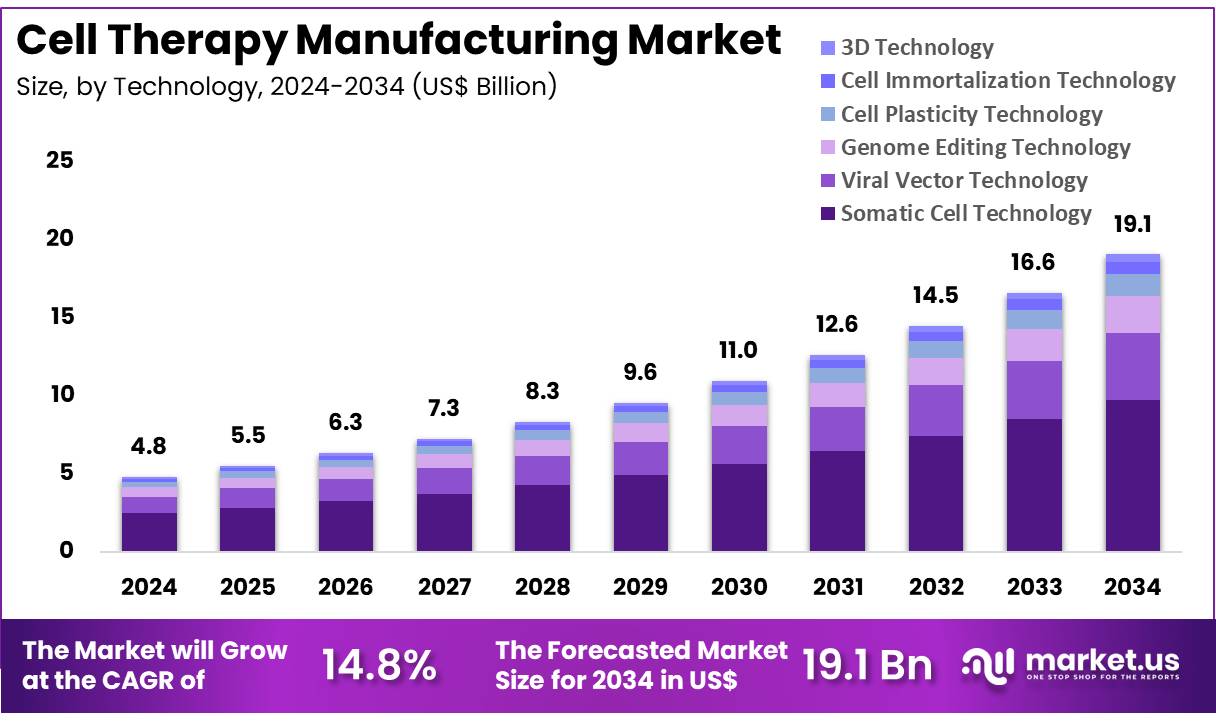Breaking: Cell Therapy Revolution Sparks Billion-Dollar Manufacturing Boom

The global cell therapy manufacturing market is poised for remarkable growth, with projections indicating a substantial leap from $4.8 billion in 2024 to an impressive $19.1 billion by 2034. This extraordinary expansion reflects the rapidly evolving landscape of regenerative medicine and advanced therapeutic technologies.
Driven by groundbreaking scientific innovations and increasing investment in cell-based treatments, the market is experiencing unprecedented momentum. Researchers and pharmaceutical companies are pushing the boundaries of medical science, developing cutting-edge cell therapies that promise to revolutionize treatment approaches for numerous complex medical conditions.
The anticipated growth underscores the immense potential of cell therapy manufacturing, highlighting its critical role in transforming healthcare and offering hope for patients with previously challenging or untreatable diseases. As technological capabilities advance and understanding of cellular mechanisms deepens, the market is set to witness exponential development in the coming decade.
